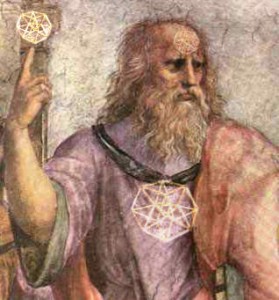Plato's 'just state' - its hierarchy, harmony and three classes
Having established logically sound criticisms against democracy, now Plato begins to build up his hypothetical ideal state. In doing so, it is said that one of his key elements in Republic is ‘to put forth a conception of the “just state”‘ (http://philosophynow.org/issues/90/Platos_Just_State). The definition of justice, according to Plato, is ‘“To do one’s own business and not to be a busybody is justice.” (Republic 433b.)’ (ibid) Therefore, it follows that ‘In the just state, each class and each individual has a specific set of duties, a set of obligations to the community which, if everyone fulfils them, will result in a harmonious whole (ibid). The idea seems like corresponding to Plato’s philosophical world view that ‘everything in nature is part of a hierarchy, and that nature is ideally a vast harmony, a cosmic symphony’ (ibid), therefore, the just state should be hierarchical like nature and individuals should be ‘ranked according to their aptitudes, and definitively placed in the social hierarchy’ (ibid) because ‘justice consists in fulfilling one’s proper role – realizing one’s potential whilst not overstepping it by doing what is contrary to one’s nature’ (ibid).
 |
| Plato |
In Republic, Plato discusses further details of his ideal state, which consists of ‘three major classes, corresponding to the three parts of the soul. The guardians, who are philosophers, govern the city; the auxiliaries are soldiers who defend it; and the lowest class comprises the producers (farmers, artisans, etc)’ (ibid). In this class society, ‘People are allowed to have only one occupation – namely that for which they are best suited by nature’ (ibid), and since ‘Only what is conducive to temperate living is encouraged… Neither wealth nor poverty is permitted, as each leads to vice’ (ibid).Interestingly enough, the notion of this ideal state consists of three major classes, which is simply divided in governors, soldiers, and all the rest, seems to share some similarities with the political system of the winner of the Peloponnesian War, Sparta.
For reading the text in full: http://wrex2009.wordpress.com/2014/09/12/platos-republic-with-its-historical-background/

No comments:
Post a Comment